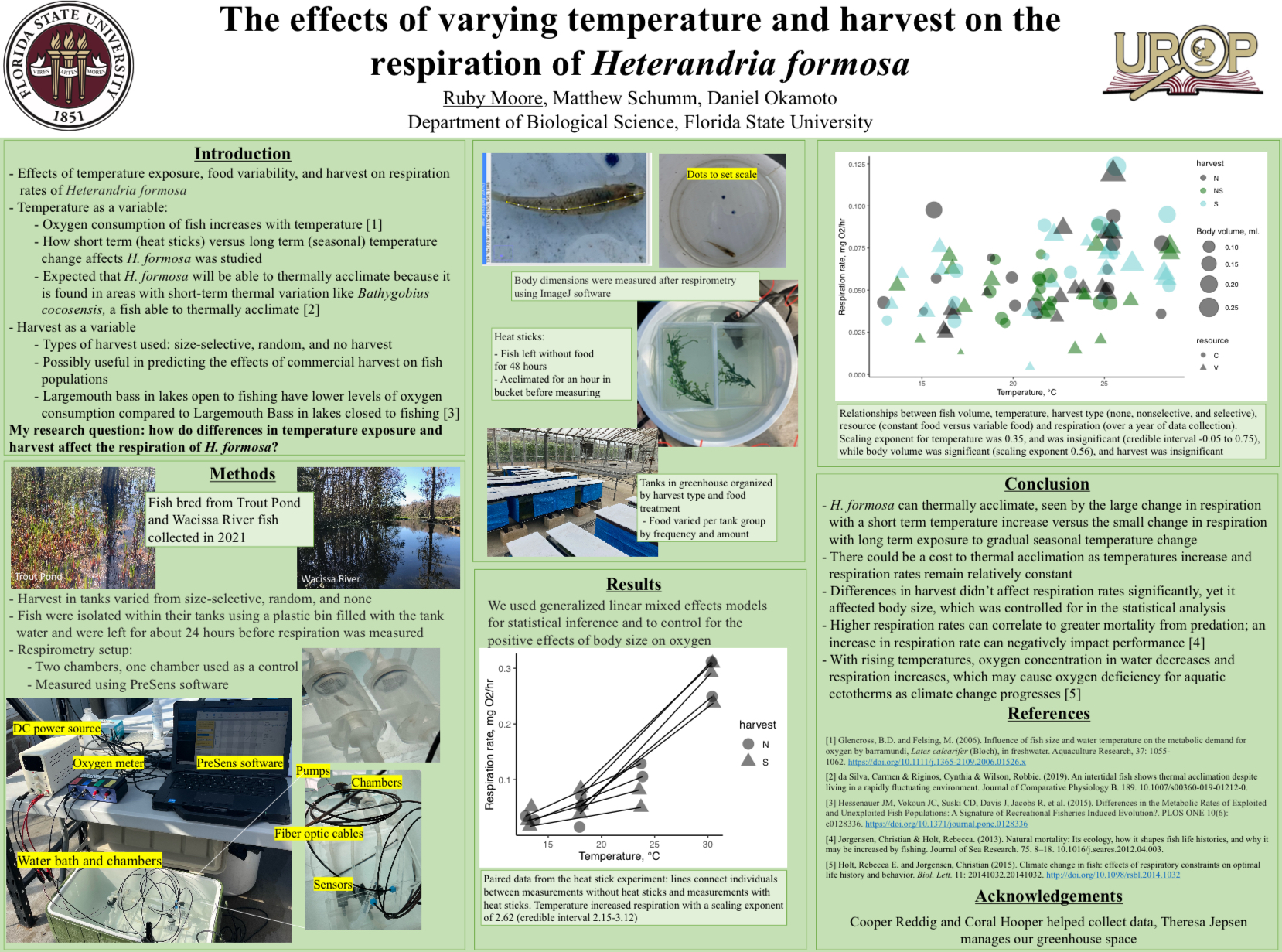Research Symposium
24th annual Undergraduate Research Symposium, April 3, 2024
Ruby Moore Poster Session 1: 9:30 am - 10:30 am /151

BIO
My name is Ruby Moore, and I’m a sophomore at Florida State University. I’ve had some research experience in my time here, including the Undergraduate Research Opportunity Program. My research interests are evolution and ecology, and I hope to conduct more research in these areas as my education continues.
The effects of varying temperature and harvest on the respiration of Heterandria formosa
Authors: Ruby Moore, Matthew SchummStudent Major: Biology
Mentor: Matthew Schumm
Mentor's Department: Biology Mentor's College: College of Arts and Sciences Co-Presenters:
Abstract
Studying how differences in temperature, food variability, and harvest affect a population can help to understand how issues such as climate change and commercial harvesting create trait change in a population. Insight into such changes, or lack thereof, can help maintain resource availability and aid conservation efforts. The purpose of this research was to determine if there is a significant change in the respiration rates of individuals in a population of Heterandria formosa with changes in temperature, food variability, and harvest. Two genetically different wild populations of H. formosa were collected, bred together, and split into tanks in a greenhouse. Size-selective, random, and no harvest treatments were applied. Food was variable or constant. Tank temperatures were measured during the transition from winter to spring. Individual responses to short-term elevated heat exposure were measured using heat sticks on a smaller sample of fish in different enclosures. The respiration rates of individual fish were measured with a respiration chamber. We found that there were larger changes in respiration rates with short-term heat exposure compared to a gradual seasonal increase in temperature. This means that H. formosa can thermally acclimate. Thermal acclimation may come with increasing costs to the fitness in acclimating organisms as temperatures rise. Food treatments had no significant effect on respiration. When accounting for body size in statistical analysis, harvest didn’t have a significant effect. This implies that respiration rate changes don't play large roles in responses to large density fluctuations caused by human harvest in real-world human-harvested fish populations.
Keywords: Temperature, harvest, fish, Heterandria, respiration


